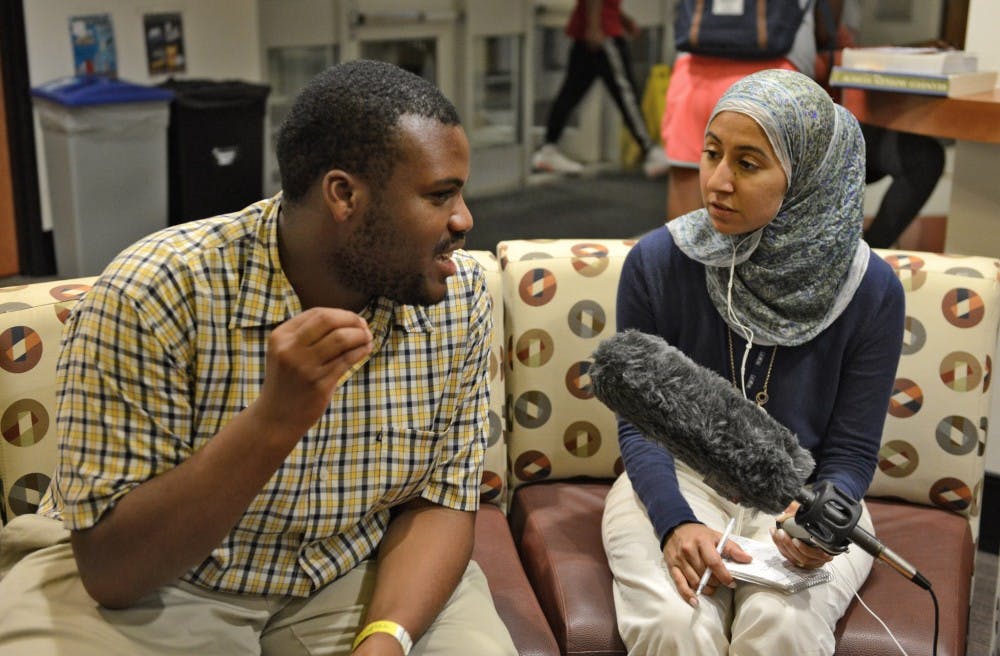The Moseley Center was packed on Monday, Sept. 26, as hundreds of students and faculty crammed in to watch the televised presidential debate as part of the Elon University Political Forum’s non-partisan watch party. In the crowd, hidden amongst the rows and rows of viewers, was NPR reporter Asma Khalid.
Khalid has been traveling across the country during the 2016 election, reporting on the intersection of demographics and politics for NPR. Her voyage along the campaign trail has led her all over the United States, but this week, she stopped by Elon to report on Millennial voters’ reactions to the debate.
The radio story, which ran on NPR’s national news program “All Things Considered," featured a breakdown of students’ political leanings and how they were influenced by the debate. Khalid interviewed a handful of Elon students, whose voices were heard nationwide the next afternoon.
Khalid said that she chose to report from Elon because of its unique bipartisan watch party. She looked at a number of schools in North Carolina and Ohio, both swing states, but found that many of the colleges and universities she investigated only had party-specific viewing events. The University of North Carolina at Chapel Hill, for example, was the site of a watch party hosted by the university’s College Republicans club and sponsored by Fox News. In search for a more diverse array of opinions, Khalid came to Elon.
“I wanted a cross-section of people from different political backgrounds," Khalid said. “And the folks at the Harvard Institute of Politics, who have often been a helpful resource to us this year around millennial issues, referred me to Elon. I spoke with the political science professor on campus who was helping organize the event, and it seemed like the right fit.”
Watching the debate with Elon Uni kids at a nonpartisan party in NC (a rarity when it comes to debate parties!) pic.twitter.com/x7ZykkO2R2
— Asma Khalid (@asmamk) September 27, 2016
The story focused on Hillary Clinton’s need to secure a largely undecided millennial voter base. Many of the voices represented in her report indicated she is gaining passive support, as young voters are reluctant to show enthusiastic dedication to Clinton, but find themselves siding with her simply because she is the alternative to Republican nominee Donald Trump.
However, Khalid said her visit to Elon revealed some surprises about students’ voting intentions.
“I was struck by the number of people who voted or had considered voting for a Republican candidate in the primaries," Khalid said. “And — I mention this because it’s different than what I’ve found on some larger state school campuses — it runs counter to the assumptions some analysts have about millennials and their voting behavior."
During non-election months, Khalid is the politics reporter for WBUR, NPR’s affiliate station in Boston. But this year, she says she has cherished the opportunity to hear a diverse collection of voices across the nation.
“This election, we’ve heard so much vitriol," Khalid said. “It’s easy to forget the very real policy concerns people on the ground feel, and I feel so fortunate that I get to talk to voters and hear what they’re thinking. And, who knows? Maybe the candidates hear our stories and reflect on what the voters are saying.”


